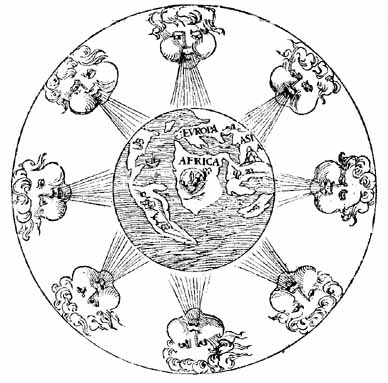CFP:"Between Inclusion and Exclusion: Cosmopolitan (Cultural) Nationalism in the Age of Enlightment" - 25-29 July 2011, Graz (Austria) - Deadline: Jan. 20, 2011
Call for Papers
Between Inclusion and Exclusion: Cosmopolitan (Cultural) Nationalism in the Age of the Enlightenment.
It has long been a common assumption that in their profound belief in universal reason and a common human nature, the men and women of the Enlightenment shared a cosmopolitan world view. This conviction was based on the idea that the people of Europe were only superficially different – a guiding principles of the enlightened Republic of Letters. On the other hand, Gellner and Anderson have traced the emergence of ‘nationalism’ in the form of Imagined Communities during the course of industrialisation at the close of the 18th century as a response to the loosening of Estate-based models of social organisation (Gellner 1983: 33ff; Anderson 1983: 37ff.). As a consequence, most research on nationalism has focussed on the ‘long 19th century’ since 1789, that is to say, on the period of broad implementation of the nationalist discourse in multiple social classes (Hobsbawm 1990: 12ff.).
We wish to concentrate on what Hobsbawm has termed the second phase of nationalism during which intellectuals and ideologists acted as early champions of a national re-birth in the sense of ‘cultural nationalism’; we disagree with Hobsbawm’s early 19th century timeframe of this discourse. Recently scholars such as David Bell, Roberto Romani and Elizabeth Rechniewski) have argued that 18th century intellectuals showed a great awareness of the importance of nations and of national belonging. We likewise argue that it is necessary to date the formation of the discourse of (cultural) nationalism to the early and middle phases of the Enlightenment. Far from disrupting accounts of the cosmopolitanism of writers such as Herder, Vico, Voltaire, Montesquieu and Hume, the necessary acts of cultural transfer and translation in cosmopolitanism actually enabled the perception of different, ‘other’ cultures as ‘nations’. Hence nationalism and cosmopolitanism as concepts were not binary opposites, rather cosmopolitanism may actually have been a crucial component in the formation of the discourse of nationalism.
The broad theme of inclusion and exclusion in discourses of cosmopolitanism and nationalism is intended to include both social sciences and humanities. We are happy to receive proposals on conceptions of nationalism and cosmopolitanism in eighteenth-century cultural and political thought, particular we welcome suggestions referring to the early and mid-Enlightenment. Some possible questions are:
- how do intellectuals conceive the relationship between nationalism and cosmopolitanism and is the Republic of Letters compatible with nationalism?
- how are perceptions of selfhood constituted via concepts of alterity?
- what are the media of this discourse?
- what role does religious nationalism play in these relations?
- how is the structure and organisation of the scientific community influenced by cosmopolitan nationalism?
We welcome proposals of no more than 500 words to the panel convenors by the 20th of January 2011 at the latest:
Matthew D’Auria: matthewdauria@yahoo.it
Barry Murnane: barry.murnane@germanistik.uni-halle.de
Christoph Schmitt-Maaß: christoph.schmitt-maass@netzwerk-arw.uni-halle.de
References:
Anderson, Benedict [1983]: Imagined Communities. Reflections on the Origin and Spread of Nationalism. 2nd Edition. London 2003.
Gellner, Ernest [1983]: Nations and Nationalism. New Perspectives on the Past. 2nd Editon. London 2006.
Hobsbawm, Eric J. [1990]: Nations and Nationalism since 1780.
Programme, Myth, Reality. 2nd Edition. Cambrigde 2004.
Christoph Schmitt-Maaß
Martin-Luther-Universität Halle-Wittenberg
Exzellenznetzwerk "Aufklärung – Religion – Wissen"
Franckeplatz 1, Haus 24
D-06110 Halle (Germany)
+49-170-6281915

